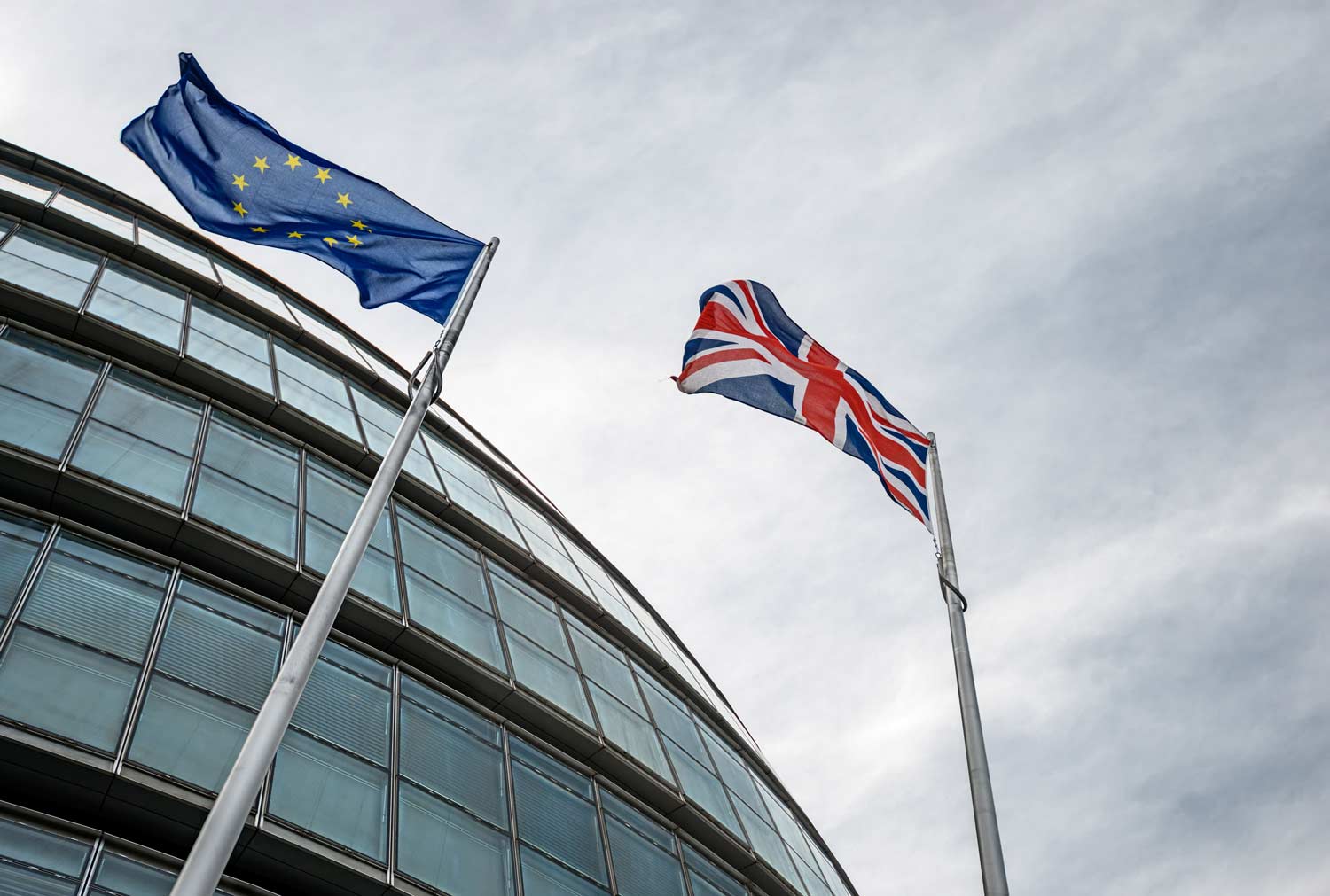The November Market Pulse 2019
Chris Godding, our Chief Investment Officer, discusses the looming election, the involution of markets when interest rates are close to zero, a post trade war world and the outlook for Asia.
Published on 29 Nov 20198 minute read
Written by Chris Godding

The Winter Election
Back in August, I set out our thoughts on the economic implications of a Labour Government. I emphasised that these were economic assumptions rather than a judgement on the equity market because the two are by no means correlated. The assessment was based on the 2019 manifesto being similar to that of 2017 and, assuming we remain in the EU under Labour, the economic result would be similar to the impact of leaving the EU with the Conservatives in power.
However, now that we have seen the 2019 Labour manifesto, it is fair to say that it represents a further material increase in State intervention, eclipsing the vision of 2017, and is decidedly negative for the economy.
The ambitions set out – and reallocation of wealth implied – is on such a scale that the outcome is impossible to model with any confidence. The only certainty is that a Labour majority is very unlikely to be good for bond or equity markets. That said, our view is that a Conservative majority is still the core assumption, followed by a Labour minority where the more extreme policies are likely to be heavily diluted.
King of the Polls
On the NatCen website (1) on 8 November, the renowned election watcher John Curtice noted that 78% of those who supported Leave are currently proposing to vote for either the Conservatives or the Brexit Party. Assuming a 50/50 split between Remain and Leave, the survey implies that around 40% of the popular vote has a bias to vote Conservative or the Brexit Party and that 18% of Remainers will continue to vote Conservative, despite Brexit.
This compares to 81% of Remainers or 40% of the popular vote who say they will only support one of the parties in favour of another referendum. The critical factor is that the committed Remain vote is divided between Labour, the Lib Dems, the Scottish Nationalists and the Greens and, prior to the Labour manifesto, NatCen suggested that Labour will pick up only 42% of Remainers (17%) and 13% of Leavers who remain loyal to Labour. Combining both cohorts equates to 30% of the popular vote who poll as Labour voters versus about 45% for the Conservatives.
Clearly, the Labour Party recognised the need to go all-in with the manifesto to take back some of the Conservative share of marginal Leave voters. Targeting public service employees in particular (NHS and Emergency Services) makes perfect sense, considering the public sector represents 5.4 million people in the UK(2), 16.5% of all people in paid work and 11.5% of registered voters.
The pledge to drop university tuition fees will also help sway the substantial student vote (est. 1.5m or 3% of registered voters) and narrow the Conservative lead. However, a Labour majority remains a remote probability.
For those who have had enough of politics, I strongly suggest light relief in the form of the original Barrett Strong version of the song ‘Money’ (1959).
Involution
Back to macro research, in an excellent recent piece from Julien Garran of MacroStrategy Partners the growing dissonance between credit and equity markets gives him cause for concern. Involution is what happens to your muscles when you spend too much time in space and Garran draws a parallel to corporate returns when the cost of capital (rather than gravity) falls to zero. This dynamic has been a recurring theme of the Pulse where I have argued that perfect competition must ultimately drive an equilibrium between the cost and return on capital once financial leverage had peaked. The key question has always been how long it would take to reach that peak and the tolerance of markets to finance extended corporate balance sheets and “Blitzscaling” models driving for market share at any cost.
Garran notes that previous bull markets, including 2000 and 2008, come to an end only when the credit cycle stops and suggests that recent developments are worrying in that regard. In his view, leveraged loans, high yield spreads in the energy sector and the performance by IPOs of cash-burning tech stocks all indicate a peak in the credit cycle. In February 2000 it was the cash drain at Amazon that caused a tectonic shift and perhaps in this cycle it will be the failed public funding of WeWork. The first ‘failure’ is always dismissed as a “one-off event”.
If the credit dries up, previously unprofitable companies with a high cash burn are run for cash generation, and so investment evaporates. Investors change from thinking about the return on their money to the return of their money. The cash return will, of course, initially have a positive effect short-term, but the petrification of the capital base and sudden stop of investment would be overwhelmingly negative soon thereafter. For companies that can’t run for cash, the consequences are fatal.
Based on the estimates from MacroStrategy, financialised or credit-driven demand amounts to 9-11% of US GDP and, if corporate behaviour switched from growing borrowing by 5% to shrinking it by 5%, US$2trn in capital would drain out of the system. This is 10x more than the Federal Reserve could inject by cutting interest rates to zero by the end of 2020; Garran notes rather chillingly that “at zero real rates we go through the looking-glass and […] become incentivised to consume down our capital stock”.
I have to confess that this conjecture appeals to my cognitive bias as a die-hard Schumpeterian and a fan of creative destruction. Like harsh pruning a rose, the cycle that lies at the heart of capitalism needs the occasional rejuvenation to persist and the Americans are particularly good at it. However, Schumpeter also believed that capitalism would ultimately fail through discontent and bring about a revolt of the ‘intellectuals’, leading to socialism. A heady thought as we consider the stark options on offer at the election!
The takeaway for me from Garran’s piece is to keep an eye on credit spreads and temper our exposure to expensive “growth”.
Investment
“Ask people why they procrastinate, and you probably won't get a crisp answer.” Robert J. Shiller.
The weakest component of the global economy at the moment is investment. The US/Sino trade war is the principal culprit and Brexit is stalling investment decisions in the UK. Equity markets have rallied recently on the prospects of a trade deal and the expectation is that investment will recover once the deal is agreed. Therefore, the probability of a recession in 2020 has receded and is being replaced by expectations of normalisation and the release of a back-log of spending plans. Earnings revisions should also reflect upgrades rather than the trend of downgrades witnessed so far this year. This consensus for an earnings recovery, backed by fiscal stimulus and extremely accommodative monetary policy, is a constructive backdrop for markets next year – if all goes to plan.
The questions now are, what could go wrong, how much is priced in and what’s the upside? Equity markets are generally accepted to be efficient and, given that this rosy scenario is now the consensus, the outlook would seem to be very dependent on corporate earnings delivering at least in line with expectations. The 12% consensus earnings growth estimate for next year and the expected dividend yield of 2.2% provide a framework for expected returns, with the caveat that a fair apportion of the rebound is already priced in. In a low growth world where financial leverage has possibly peaked, these earnings growth assumptions also look quite optimistic and history suggests that the final outcome is, on average, around half the original estimate. A synchronised global recovery would change that muted outlook, but any recovery in investment will take time to flow through and prospects of a left-wing presidential candidate for the Democrats in 2020 provides additional reasons for CFOs to hold back spending, at least in the USA.
Earnings estimates in 2019
Source: Bloomberg
While President Trump’s agenda to bring investment back to the US is likely to falter until after the election, the likelihood for a recovery in spending outside the US appears more compelling. Globalisation may have stalled but international businesses are shifting quickly to a more local supply chain model, servicing the regional market place with regional production, particularly in Asia, with China as the dominant target market.
A recovery in investment in Asia post the trade dispute, combined with a slowdown in investment in the US, should provide a boost to Asian domestic currencies and additional scope for the regional central banks to ease monetary policy in order to support growth. Asia is also cheap relative to the US equity market, and the higher cost of capital leaves it less exposed to the potential contraction in credit noted above.
With the burden of a strong dollar likely to moderate, along with attractive valuations, lower interest rates, strong domestic growth and a recovery in foreign investment, Asia would seem like a good option in what could be a volatile, low-growth year.
In December, we will replace the Pulse with an outlook for Fixed Income, Property, Currency, Commodities and, of course, Equities for 2020. We will hopefully have the benefit of knowing who is running the country which, no doubt, will influence our thinking.
However, whatever the outcome, we will retain the perspective that economic output of the UK is only 3.2% of global GDP and now ranks below India. The value of the MSCI UK is also just 4.8% of the global MSCI All Country World Index.
Reference:
- NatCen Social Research: John Curtice, Senior Fellow at NatCen, Professor of Politics at Strathclyde University, and Chief Commentator on the What the UK Thinks: EU Website.
- Office for National Statistics (ONS
Get insights and events via email
Receive the latest updates straight to your inbox.
You may also like…






